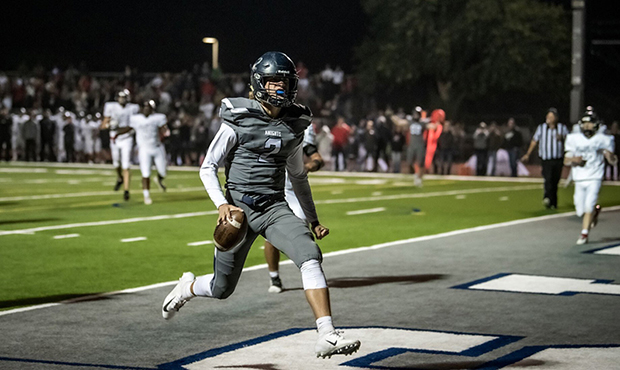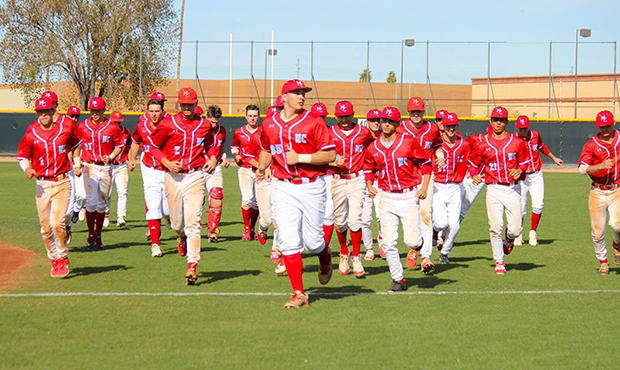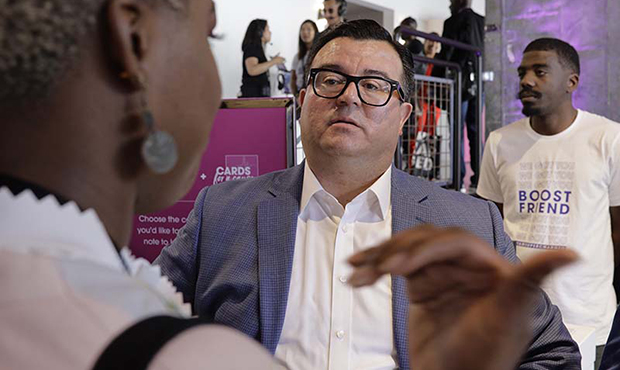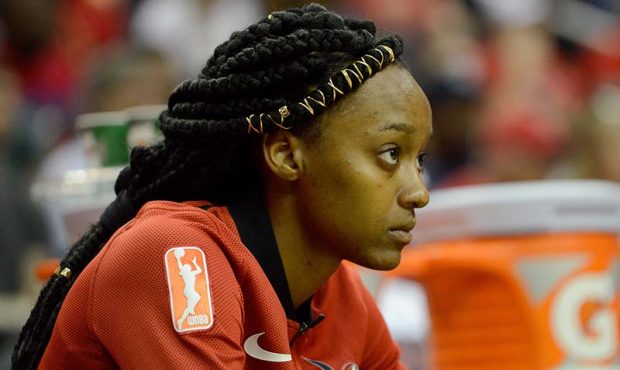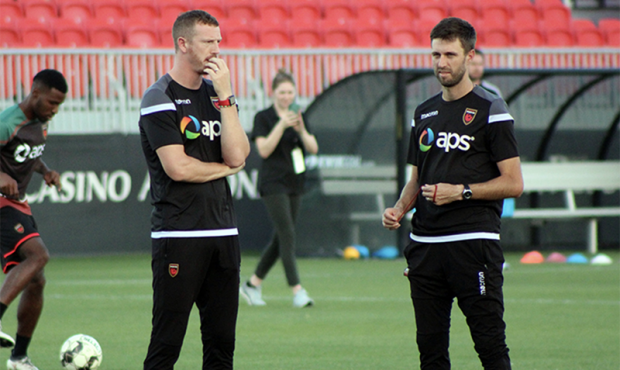Through hardships of grind, D-backs players driven by family, fortune
Sep 1, 2017, 4:06 PM
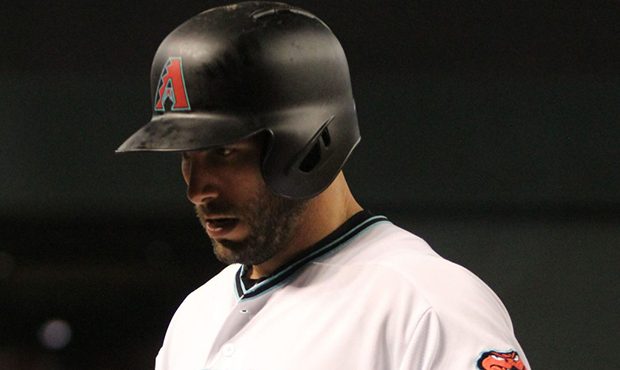
Arizona Cardinals first baseman Paul Goldschmidt walks back to dugout after strikeout in the bottom of the third inning against Los Angeles Dodgers at Chase Field, Tuesday, August 29, 2017, Phoenix.
PHOENIX — Some refer to it as a marathon. Others allude to a battle of wits between the strong and the weak-minded. No matter how it’s phrased, MLB’s 162-game regular season is a grueling six-month fight from start to finish.
For professional baseball players, early season success can be followed by bouts of struggles. Many are forced to the dreaded disabled list. And long stretches of time are spent on the road away from friends and family.
Arizona concluded a similar stretch Thursday, having played 15 of 29 games on the road, including a stretch of 20 straight.
But despite the fatigue that sets in as the season pushes on, there are lessons to be learned along the way.
“Every day you learn something new in this game and what I’ve learned is that you always have to be ready both physically and mentally,” said D-backs closer Fernando Rodney. “Even in the offseason, you have to work just as hard to keep your body in shape because you know the next season is coming.”
As a 40-year-old hardened veteran of the game, Rodney knows first-hand about the wear and tear of an MLB season. The right-handed reliever found that out early on in his career when he missed the entire 2004 season due to injury.
Now, in his 16th season and with his eighth MLB team, the same message expressed at the onset of his career continues to stick with him today.
“Just go out and work hard each day to prepare yourself for all [162] games,” he said. “That’s all you can do.”
It’s a message that can often only be directed at what takes place on the field.
An aspect of the game that is absolutely necessary and one that typically goes unseen takes its own toll on players well after the game has ended.
“Having a game and then traveling from one coast to the other and then playing a game the day after, it can be really tough to recover,” said Arizona outfielder Gregor Blanco. “Especially playing so many games in a row. We can play 20 games in a row, have a day off and then we’re right back to 15 straight games — that’s one of the toughest parts of it all.”
The two-time World Series champion while with the San Francisco Giants acknowledges that those types of stretches late in the season can easily wear down on players. It wasn’t until he was able to get into the routine of a major league season that he figured out what worked for him and what didn’t.
Once he was able to develop proper eating and training habits, he was then able to harness each of those things into his daily routine at the ballpark. By doing so, he was able to gain a better understanding of his body and how it functioned best, making everything else that much simpler.
One particular battle that Blanco has faced during his career extended far beyond the need to stay healthy and prepare each given day.
It’s one that began at the minor league level and for some of his teammates both past and present, one that began at home.
“In Latin countries we don’t have too much money and then we come here and at the minor league level, the issue is always money,” Blanco said. “It’s tough to be able to put yourself in a good position to play the game and be in shape when we don’t have enough [money] to actually pay rent, eat, and then have to be able to go out and perform.
“That’s not easy.”
Even though the compensation rate for minor league players and MLB players may be strikingly different, it doesn’t remove the forces that may drive a certain player through the 162-game grind and toward a more profound meaning.
A meaning that through the months of travel and the struggles players may face, truly exemplifies a larger purpose.
“What helps me through it is knowing I have clear in my mind what I want in life,” Rey Fuentes said. “What are my goals and what is my purpose here on Earth.”
The 26-year-old left-handed hitting outfielder has spent the majority of his career in the minor leagues. He’s the classic example of a fighter. A name on a roster that often goes unnoticed but one that presses on despite the grind and the uncertainties of his MLB fate.
“I know that I want to be a major league baseball player and I wake up every day and I thank God that I have this uniform and this opportunity,” Fuentes said. “That’s my fuel and because of the things that I want out of my life, I wake up every day and I don’t give up.”
Through the many hardships of the game, whether they’re internal or external, MLB players are no different from the everyday person. They seek out help. They ask questions. They search for the voices of character who can help them through times of adversity and help them achieve their goals.
While beginning his career with the Detroit Tigers, Rodney found that voice in 41-year-old pitcher Jose Mesa who was nearing the end of a 19-year career.
“He said to me, ‘Hey, if you want to keep cool in this game, you have to focus your body and really focus on yourself if you want to be in this game for a long time. Just keep working, do your thing, develop your routine — because it’s not an easy game.’”
Now, the roles have switched and “La Flecha” (The Arrow) as his Diamondbacks teammates refer to him, is in a position to offer a helping hand to younger players much like Mesa did with him.
“Young guys come to me and ask me how I’m able to keep my body in tact and always ready,” Rodney said. “Being 40 years old, I tell them I only know one thing and that’s to always keep working. If you want to be here, you have to work.”
In just his first season in Arizona, Rodney’s words of wisdom have traveled down the lines to younger players like Fuentes who understand that it all stems from experience. And, with the experience and wisdom that certain players have to offer, it’s essential to ask questions.
“I’ve reached out to coaches to see who the guys to talk to are,” Fuentes said. “I’ve talked to [Goldy], I’ve talked to [J.D.], the list goes on. Those guys are here for a reason. They’ve made it this far by doing certain things and if they’re things that I need to work on, I’m going to talk to them and I’m going to ask questions because at the end of the day, I want to be better and I want to be where they’re at.”
Above it all — long days at the ballpark, the struggles to stay healthy, time spent on the road, pressures to perform — the marathon season signifies an immense sacrifice made by players to spend a significant portion of the year away from their loved ones.
It’s a sacrifice that was made long before they ever stepped foot on a major league diamond. One that requires them to create their own family away from home.
“Family is the most important thing,” Rodney said. “My family understands why I’m here and that my other family are my teammates. Having good relationships with all of these guys and knowing when to rely on each other, we know how important that communication is.”
That communication is only possible when relationships are forged and an environment influenced by support is then created.
“Being able to come into the clubhouse and feel comfortable with your teammates is huge,” Blanco said. “We spend so much time away from home and away from our kids and our families, during the season this is our home. Being able to have a family [there] to support you is so important.”
At the end of the day, after the final out of the game has been recorded, the grind continues on. Whether it’s a rookie, middle-aged player, or veteran, the grueling effects avoid no one.
For a young player who’s still searching for answers of his own, Fuentes is one member of the Diamondbacks whose wisdom for enduring the grind is worth listening to.
“For me, I always remember why I’m here. I remember why I’m doing this.
“I remind myself of the purposes for why I’m fighting and waking up every day and that’s what keeps me going.”

